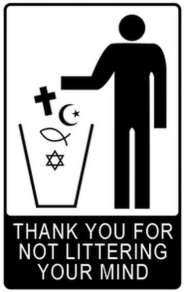ISBN: 0826463274
0826463282 (pbk.)
Extracts provided by Google books:
http://books.google.com/books?id=U--6nb7kKAsC
Contents:
Introduction: why Marxist theory?
Louis Althusser: the difficult birth of Israel in Genesis
Antonio Gramsci: the emergence of the 'prince' in Exodus
Terry Eagleton: the class struggles of Ruth
Henri Lefebvre: the production of space in 1 Samuel
Georg Lukacs: the contradictory world of Kings
Ernst Bloch: anti-Yahwism in Ezekiel
Theodor Adorno: the logic of divine justice in Isaiah
Fredric Jameson: the contradictions of form in the Psalms
Walter Benjamin: the impossible apocalyptic of Daniel
Conclusion: on the question of mode of production.
In his introduction, Boer comments on the state of Bible studies and the role of theory within it. Apparently every fashionable theoretical conceit (my language, not Boer's) a la postmodernism is being trotted out these days, with the exception of Marxism, which remains marginalized. It becomes evident that Biblical hermeneutics should be considered a subset of literary criticism, and Marxist approaches merit greater attention.
Marxist studies of the Bible singled out are:
Norman Gottwald, The Tribes of Yahweh (1999)
Richard Horsley (on the New Testament), ed., Semeia 83/84: The Social World of the Hebrew Bible
Mark Sneed on class (1999)
Simkins on the mode of production (1999)
Gale Yee, Marxist-feminist interpretations of Bible, e.g. Genesis (1999).
The bibliography is not part of the Google preview, so this is the best I can do.
Marxist methods address a number of theoretical problems listed by Boer. Boer then summarizes the chapters to come.
Boer reserves his highest praise for Adorno. Yay! Just as Adorno finds untenable paradox in Kierkegaard, Boer finds paradox in the attempt to link divine and social justice,a combination that does not compute. Adorno's technique of immanent critique and the teasing out of truth content which constitute dialectical criticism can serve the necessary cause of demythologization. Boer enumerates the various advantages of dialectical criticism. Adorno is relentless in turning Kierkegaard on his head, and in combating Benjamin's attempts to fuse metaphysics and historical materialism (pure theology would better serve the cause of Marxism!). Boer devotes some detail in analyzing Adorno's critique of Kierkegaard. Adorno finds ideological regression in the very theological premises of Kierkegaard's hermeneutics. Adorno links sacrifice to paradox, where Kierkegaard becomes undone. Sacrifice becomes demonic, and the logical conclusion of belief is nonbelief. Boer takes the example of Isaiah to deploy his interpretive method.
There are also extracts from the chapters on Frederic Jameson and Walter Benjamin.
It seems to me that there are important lessons to be drawn here, whether or not Boer intends the same lessons as I. Though his bottom-line subjective intentions are not clear to me, these are my priorities that I think Boer's work objectively addresses:
(1) The undermining of the legitimacy of liberation theology along with all other theology.
Marx dispensed with the entire future of liberation theology in advance, in the act of dispensing with Bauer and Feuerbach. Not that Marx preempted the need for further hermeneutical work and criticism on our species' symbolic productions, but that historical materialism is the inversion of myth and a permanent supersession of same. Liberation theology, death-of-God theology, process theology--all of this crap remains entrapped within the self-enclosed world of ideology just as surely as Bauer and Feuerbach were so entrapped. As poetical constructions they may be as good or bad as any other, but as truth claims they are all rotten to the core.
Marxist criticism did of course advance. Its most sophisticated stage is embodied in the work of Adorno and the early Horkheimer, committed to the decoding of idealism into materialism, and betrayed by the both of them in their unfortunately over-influential Dialectic of Enlightenment.
(2) The correction of lapses and misguided presumptions of Marxist tradition on the nature of religion, which, as far as I can tell, takes off from and remains largely guided by its relation to Christianity, not religion in general as it often seems to pretend. Furthermore, the notion of religion--Christianity, for all intents and purposes--as alienated compensation for man's thwarted best instincts is a highly limited view of its underlying violence and barbarism.
(3) A reversal of the decline of critical theory into narcissistic petty-bourgeois academic hack-work and absorption into the current climate of cultural decay and obscurantism, exemplified by postmodernism, and--to the point here--the appalling absorption of the work of the Frankfurt School into theology, a reactionary reversal of its original programme.


















